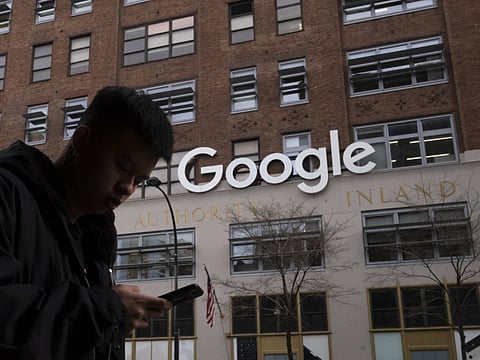Google deserves to be penalised
Tech giants have become too big and the time is near when they must be dismantled

In what is becoming more frequent and with increasing regularity, one of the giants of the tech world has been substantially penalised for illegal activity that runs counter to the principles of open competition in the marketplace. On Wednesday in Brussels, the European Commission issued a €1.5 billion (Dh6.28 billion) fine against Google for abusing its monopoly in online advertising. In essence, the commission has determined that Google has abused its power in its predatory use of search adverts.
It’s not the first time Google has fallen foul of EU regulators, and the new fine now means that the tech giant has been fined a total of €8.2 billion over the past two years for abusing its power when it comes to internet searches, monopolistic use when it comes to its Android mobile phone operating system and now in the way it used and abused its online advertising service.
For consumers across the EU, there should be some solace taken by the fact that the regulators in Brussels are serious about protecting internet freedoms and curtailing the monopoly powers enjoyed by these tech giants. Regulation and oversight do work against such predatory habits that are driven by corporate greed to increase share prices. For the moment, there is little else that seems to stand in the way of entities such as Google and Facebook and its blatant disregard and abuse of personal data to fleece consumers and businesses alike.
The EU led the way last year when it came to its general data and privacy protection regulations. Certainly, it has a proven track record in trying to rein in the abusive streaks of these companies, and had fought a long and successful battle against Microsoft over browser software installed in its products.
The EU’s antitrust rules and the determination of regulators to hold these tech giants to account is certainly to be welcomed. The reality is that right now, there is little else that deters these companies from abusing their positions. But that does not necessarily have to be the case.
Over the past two years, Google has seen the potential threat that arises from becoming too big and too powerful — and has split itself into separate entities to reflect its various online specialisms. Clearly though, that isn’t enough. The reality is that we are fast approaching a time when these tech behemoths need to be broken up one way or another.
Sign up for the Daily Briefing
Get the latest news and updates straight to your inbox



